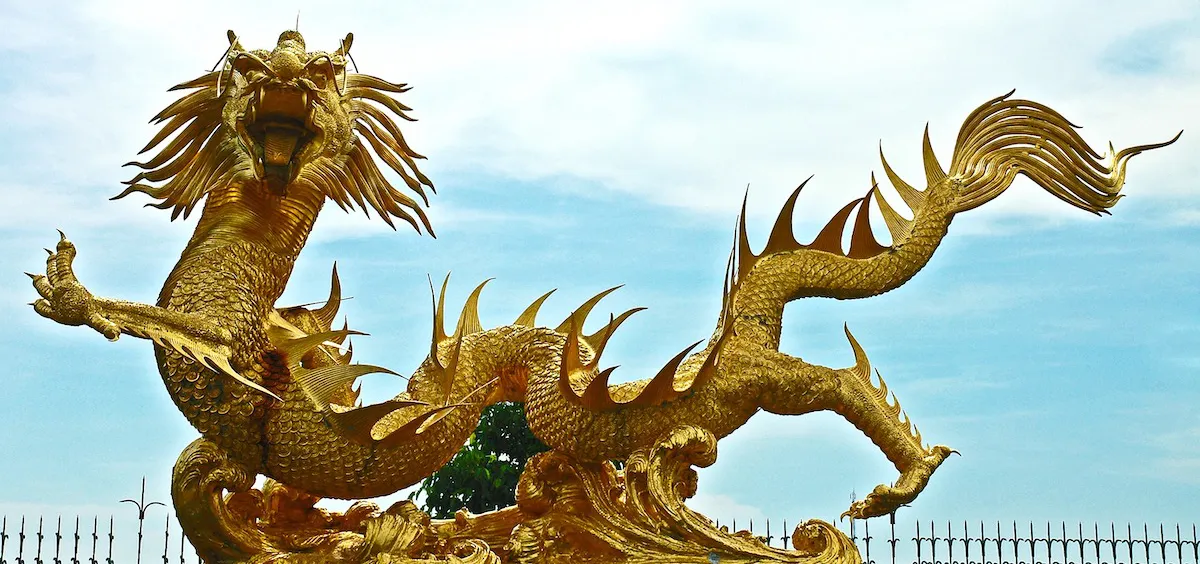Hot sauce in legal dispute, crayfish escape, child scams fraudsters, villagers hunt for dragons—it’s Viral Week
Viral Week is our weekly round-up of the weekend’s trending memes, humor, rumor, gossip, and everything else Chinese netizens are chatting about.
This week, there’s a saucy dispute, a 12-year-old gets revenge on scammers, villagers hunt for dragons, crayfish make bid for freedom, and a feathered friend meets a sad end:
Saucy scam
Three fraudsters masqueraded as representatives from Laoganma, the renowned chili-sauce maker, to enter into an advertising partnership with Tencent worth over 16 million RMB. Tencent allegedly only discovered the con when it sued the real Laoganma for non-payment of the fee, by which point the tech giant had already spent months advertising the brand in its games, social media accounts, and other merchandise.
Dragon hunt
A mysterious noise emanating from the mountains around a Guizhou village attracted hundreds of villagers to hunt for the source, with some speculating that the sound was the growl of a dragon. Experts were called in, who eventually concluded that it was probably the surprisingly loud mating call of a yellow-legged button quail.
The counter-con
After losing her New Year “lucky money” to telecommunication scammers over WeChat, a 12-year-old girl in Heilongjiang province successfully “counter-swindled” the gang by calling their number, claiming to be a bank employee, and getting their personal and bank details. She then reported the information to the police, who’ve arrested the gang of nine believed to have swindled over 30,000 RMB in more than 20 cases.
(Un)civil servant
A school headmaster in Heze, Shandong province, was fired after it emerged that he forged documents and engineered a position for his son at the local forestry bureau. The son had been receiving salary from the bureau since 1999, when he was only 11-years-old.
Young hawker
A 6-year-old boy in Shangqiu, Henan province, has joined China’s new army of street vendors by selling toys under the supervision of his father, who encouraged the activity to improve his son’s “communications skills, arithmetics, and financial management.”
Untested
On July 2, the Shenzhen Education Bureau issued a notice for schools to cancel all upcoming final exams and the announcement of results or ranking of exams already taken, except for college-entrance examinations and other academic proficiency tests, supposedly to relieve students’ pressure after Covid-19 disrupted study.
That’s cray
A woman in Hangzhou, Zhejiang province, had 10 kilograms of live crayfish delivered to her office, but forgot to take them home. During the night, the crustaceans broke out of their packaging, creating a chaotic scene for colleagues arriving for work the next morning.
Unwanted Attention
Liufeng Mountain in Guanxi attracted online attention nationwide as the shooting location of a shocking scene in the popular crime drama, The Bad Kids. In the show, a man pushes his parents-in-law off a cliff to their death. Local tourism staff have mixed feelings about the exposure, stressing that the actual spot has railings installed.
Duck-napped
Last weekend, Chinese actress Wang Luodan posted on Weibo that her colleague’s pet duck had been stolen, and promised ten Beijing roast ducks of equal size for any information. A screenshot of surveillance footage provided by Wang showed a smiling woman taking the duck from a street in Xixian county, Henan province. Local police got involved, but only to find the duck already dead (and perhaps eaten).
Examining celebrities
The story of Li Ziqi, a Chinese vlogger who has attracted over 11 million followers on Youtube for sharing videos of her pastoral life, was used as reading comprehension material in an exam at a primary school in Ningbo, Zhejiang province. Heated debate emerged online after a parent questioned whether Li’s life was representative, and worried that the “online celebrity economy” would distort students’ values. Others thought the school should not have featured Li next to pioneers in other fields, such as famous agronomist Yuan Longping. However, some pointed out that many state-owned media have praised Li’s contribution to spreading Chinese culture.
Too medicinal
Eleven herbal tea shops in Panyu district, Guangzhou, were found to have illegally added Western medicine in their traditional Chinese herbal products to improve their “curing” effect.
Cover image from Pikrepo












